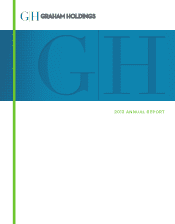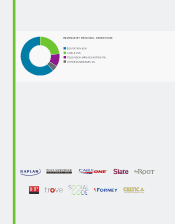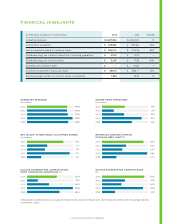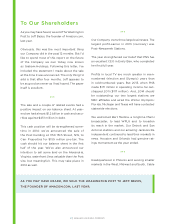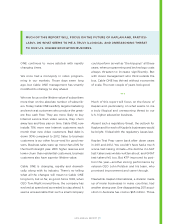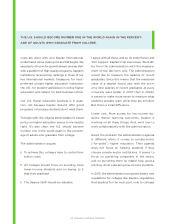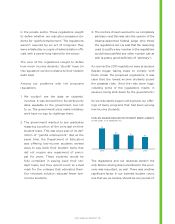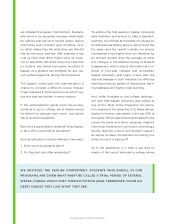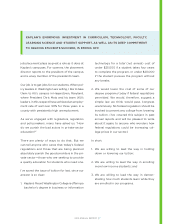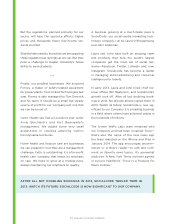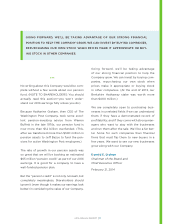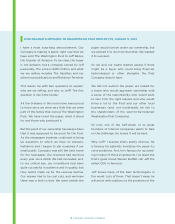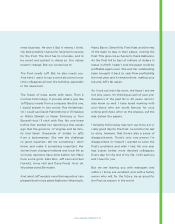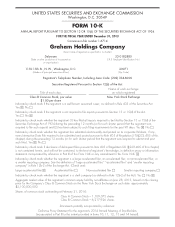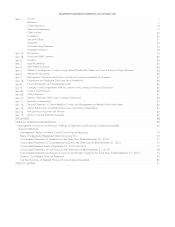Washington Post 2013 Annual Report Download - page 8
Download and view the complete annual report
Please find page 8 of the 2013 Washington Post annual report below. You can navigate through the pages in the report by either clicking on the pages listed below, or by using the keyword search tool below to find specific information within the annual report.
6 | GRAHAM HOLDINGS COMPANY
we initiated the Kaplan Commitment. Students
who enroll in our programs are given what might
be called a trial period of several weeks, during
which they owe no tuition (and, therefore, incur
no debt) unless they like what they see. We did
this at enormous expense. (We estimate it has
cost us more than $100 million since its incep-
tion in late 2010.) We did it to be very clear that
no student was being improperly recruited to
Kaplan, as a student can withdraw for any rea-
son, without payment, during the trial period.
The judge’s ruling gave the administration a
chance to consider a dierent course. Instead,
it has indicated it will propose a new set of reg-
ulations that are harsher in every respect.
If the administration wants more low-income
students to go to college, we at Kaplan would
be excited to educate many more. Just cancel
the proposed regulations.
But is this a good idea for students? Does Kaplan,
in fact, oer a worthwhile education?
Such an education could be defined in two ways:
1. How much do students learn?
2. Do they get jobs after graduation?
To address the first question, Kaplan University
asks freshmen and seniors to take a standard-
ized test, one oered at hundreds of colleges by
the Educational Testing Service. We’ve done this
for years—and the results indicate our seniors
consistently score higher than our freshmen by
an amount greater than the average at other
U.S. colleges. In the National Survey of Student
Engagement, which collects information at hun-
dreds of four-year colleges and universities,
Kaplan University gets higher scores than the
national average in such indicators as eective
teaching practices, quality of interactions, learn-
ing strategies and higher-order learning.
And, while I hesitate to cite college rankings, I
will note that Kaplan University was ranked as
one of the “Best Online Programs” for bache-
lor’s degrees in the ubiquitous U.S. News ratings.
Kaplan University was ranked in the top 20% of
the nearly 300 programs that participated in the
survey. By these and other measures, Kaplan’s
enormous investment in curriculum, technology,
faculty, learning science and student support,
as well as its deep commitment to helping stu-
dents succeed, is paying o.
As to job placement, it is safe to say that no
reader of this report attended a college where
WE INITIATED THE KAPLAN COMMITMENT. STUDENTS WHO ENROLL IN OUR
PROGRAMS ARE GIVEN WHAT MIGHT BE CALLED A TRIAL PERIOD OF SEVERAL
WEEKS, DURING WHICH THEY OWE NO TUITION (AND, THEREFORE, INCUR NO
DEBT) UNLESS THEY LIKE WHAT THEY SEE.

